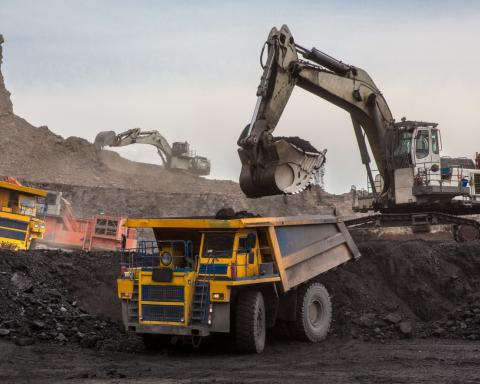Written by
Published
Category
Imperial Business School researchers find the move would save 1.2 per cent of current world GDP every year until the end of the century
The heatwave that hit India and Pakistan earlier this year put “unprecedented pressure on power demand in India and Pakistan, where people... had to endure hours of cuts amid the crippling heat. On Friday [29 April], peak demand in India touched an all-time high of 207,111 MW,” according to official figures reported by The Guardian.
It is a tragic irony that India’s and Pakistan’s immediate response to this period of extreme heat has been to expand electricity production from coal-fired power plants, which can only worsen the intensity of future heat waves.
How can we stop this infernal cycle of increased energy demand leading to more carbon emissions and a hotter planet? As hard as international negotiators have tried to reach an agreement to phase out coal (and despite the promise of a historic breakthrough at the COP26 in Glasgow), so far, all attempts to get the world to phase out coal have failed. More recently, in response to the war Russia started against Ukraine, even the countries that had given up on coal have been revising their stance.
Phasing out coal is a source of economic and social gain
The most common concern voiced with phasing out coal is that it would be too costly. We are told replacing coal with renewable energy would be too expensive. We have undertaken a systematic quantitative analysis of this claim and obtained a baseline estimate that phasing out coal would bring the world a net total gain of £77.89 trillion. This represents around 1.2 per cent of current world GDP every year until 2100. We call this the “Great Carbon Arbitrage”.
The flaw with the argument that phasing out coal is too costly is it ignores the benefits from lower carbon emissions. These benefits are real economic gains in terms of lower expected physical damages from climate change, leaving aside all the attendant benefits to economic activity and innovation the investments in renewable energy will bring.
A global agreement to phase out coal was not reached at the COP26; the 197 parties of the convention could only agree on accelerating independent efforts towards the phase-down of unabated coal power. But what is needed is a far more ambitious agreement to phase out coal that links investments in renewable capacity to replace coal, along with financing of these investments, and compensation of coal companies for lost profits.
Conditional climate financing for phasing out coal and phasing in renewables
A broad policy implication from our analysis is that, if compensation were built into an agreement to phase out coal, and if the promised transfers for green investments to developing countries were to be made conditional on phasing out coal, the social gains from such an agreement would still be enormous, and the agreement would be far more likely to succeed.
To gain further insight into the size of transfers that may be required to pay for the replacement of coal with renewable energy, we break down where these costs would be incurred by region. We find the present value of total conditional climate financing needs to end coal globally are around $29 trillion, in line with renewable investment needs estimated in other studies.
This represents an annual global climate financing need between $0.5 trillion and $2 trillion, with a front-loaded investment this decade, which we estimate to be up to $3 trillion. Investment costs for the developed world to cover these global annual climate financing needs would be in the range of 0.5 per cent to 3.5 per cent of wealthy countries’ GDP.
A public-private partnership to end coal
This clearly represents a major challenge. But our analysis shows the social gain from these investments far exceeds the cost. Some prominent commentators have argued no government in the world has enough money to make such sizeable investments and have called on the private sector to steer the required funding to renewable energy investments.
Most of the funding for these investments can indeed come from the private sector, but a significant amount of public money to enhance them will still be needed. If, for every dollar of public funds, nine dollars of private financing could be tapped through blended finance arrangements, the overall strain on public finances would not be inordinate. And when one considers the large social benefits to be gained from phasing out coal, it doesn’t seem like an unreasonable cost at all.
This article draws on findings from "The Great Carbon Arbitrage" by Tobias Adrian (International Monetary Fund), Patrick Bolton (Imperial London) and Alissa M. Kleinnijenhuis (Stanford University).




